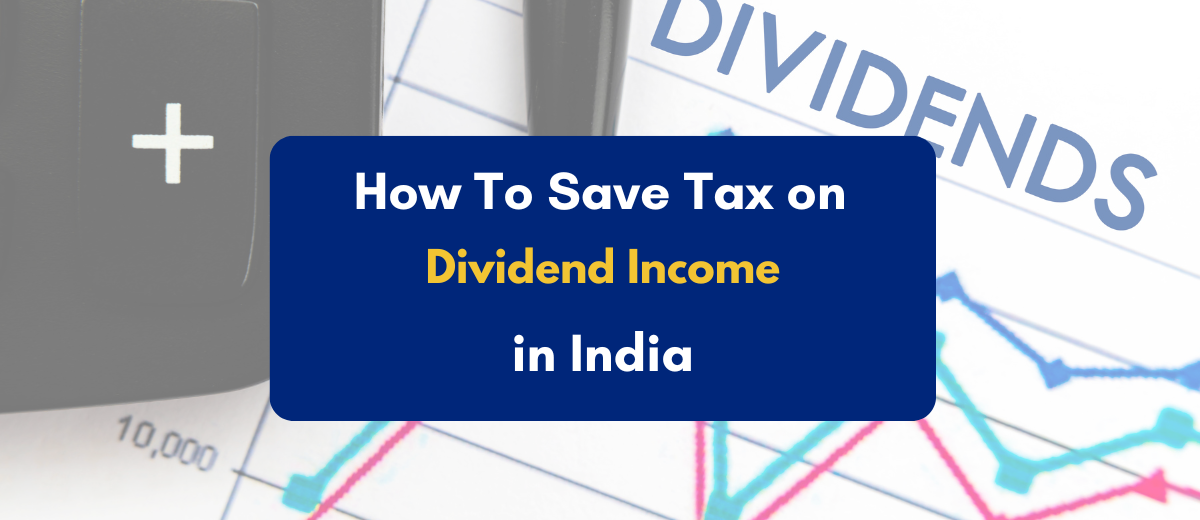Written By – PKC Desk, Edited By Karunakaran, Reviewed By – Aakash
While dividends can provide a steady stream of returns for investors, its tax implications can reduce your earning. Learn with us how to save tax on dividend.
We delve into the key strategies you can employ to effectively manage and minimize the tax on your dividend income in India.
Understanding Taxation of Dividend Income in India
When you own shares in a company or a mutual fund, you may receive dividends. These are paid periodically and are subject to taxation. This also includes dividends received from foreign companies.
Applicable Tax Rates
After March 31, 2020, the taxability of dividends was shifted from companies to the recipient.
Therefore, dividends are now taxable in the hands of individuals, HUFs, and firms at their applicable income tax slab rates.
The income from dividend is taxed at the individual’s applicable slab rate and is reported under “Income from Other Sources” in the tax return.
Tax Deducted at Source (TDS)
Companies and mutual funds deduct TDS at a rate of 10% on dividend payments if the total dividend income exceeds Rs 5,000 in a financial year.
Other Tax Considerations
- It is mandatory to report all dividend income while filing your Income Tax Return (ITR).
- Dividends from mutual funds are also taxed in the same way as dividends from company stocks.
- If an individual’s total tax liability for the given financial year is more than or equal to Rs 10,000, advance tax provisions apply.
How to Save Tax On Dividend Income: Effective Ways
Let’s take a look at some of the most effective strategies for saving tax on dividends:
1.
Utilize the Basic Exemption Limit
If your total income, including dividends, is below the basic exemption limit, no tax will be payable.
By keeping your income within this limit, you can avoid tax on dividend income.
2.
Make Use of Form 15G/15H
If as an Indian resident your total income is below the taxable threshold, you can submit Form 15G (for individuals) or Form 15H (for senior citizens).
This form certifies that the total income is below the taxable threshold, which allows you to receive dividends without TDS deductions.
3.
Claim Deductions for Interest Expenses
You can claim a deduction of up to 20% of their gross dividend income for interest expenses incurred on loans taken to invest in shares or mutual funds.
This helps reduce taxable income from dividends, provided the interest was specifically for earning that income.
4.
Consult A Tax Professional
A tax professional or experienced firms like PKC Management Consulting can help you optimize your tax-saving strategies.
By advising on deductions, exemptions, and investments, they help lower your tax liability on dividend income.
5.
Invest in Companies Offering Tax-Exempt Dividends:
Some companies or sectors may provide tax-exempt dividends.
can help reduce overall tax liability. However, make sure you verify the eligibility of such dividends under current tax laws.
6.
Investing in Tax-Free Bonds:
Though not directly related to dividends, this can help in reducing your taxable income.
Tax-free bonds issued by government-backed entities offer interest income that is exempt from tax.
Investing in these bonds can provide a steady income stream without incurring tax liabilities on the interest earned.
Looking for comprehensive tax guidance?
7.
Family Trusts/ HUFs:
Family trusts and Hindu Undivided Families (HUFs) can provide tax benefits by allowing income to be split among members in lower tax brackets, thereby reducing the tax liability.
However, the taxation of family trusts is complex, and consulting a professional is advised.
Also Helpful: Save Tax Through Family Trusts
8.
Set Off Losses Against Dividend Income
If you have incurred capital losses (such as from selling shares or other assets), you can offset these losses against your dividend income.
This reduces your total taxable income and minimizes your tax burden.
9.
Tax-Efficient Mutual Funds:
Invest in growth-oriented mutual funds where dividends are not distributed frequently.
In such funds, gains are reinvested and taxed as capital gains upon redemption, which often carry a lower tax rate compared to dividends
10.
Consider Opting for Newer Tax Regime
Under the new tax regime (Section 115BAC), individuals can opt for lower tax rates without claiming most deductions.
If this regime results in lower overall tax for you, it could reduce the amount of tax paid on dividend income as well.
11.
Invest in Tax-Exempt Instruments
Investing in tax-exempt instruments like Public Provident Fund (PPF) or National Pension System (NPS) can help lower your overall taxable income.
Using dividend income for such investments allows you to claim deductions and reduce taxes on other income.
12.
Use DTAA Provisions:
For foreign dividends, utilizing Double Taxation Avoidance Agreements (DTAA) can help prevent double taxation on the same income.
This ensures that taxes paid in one country are credited against taxes owed in another.
13.
Gifting Shares:
Gifting shares to family members who fall under lower tax brackets can help reduce overall tax liability on dividends.
The recipient will pay taxes at their applicable lower slab rates, benefiting the family as a whole.
14.
Rebalancing Portfolio:
Rebalancing your investment portfolio can help you align investments toward assets that offer capital gains instead of frequent dividends.
By shifting investments from dividend-paying stocks to growth stocks or tax-efficient funds, you can reduce taxable dividend income.
Frequently Asked Questions
Yes, dividend income is generally taxable in India. However, there are certain exemptions and deductions available.
The tax rate for dividend income depends on the individual’s total income. For those above the basic exemption limit, dividend income is taxed at the applicable income tax slab rate.
You can save tax on dividend income by investing in tax-efficient mutual funds, claiming deductions for other expenses, and other investing in tax efficient instruments.
Dividends received from foreign companies may be taxable in India depending on the specific circumstances and applicable tax treaties.
While there is no specific deduction for dividend income, you can reduce your overall taxable income by claiming deductions for other expenses such as medical expenses, home loan interest, and donations.

 Expert verified
Expert verified 

